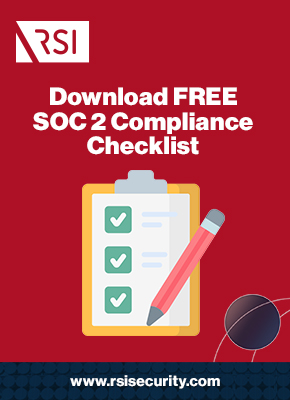If you’re on the fence about whether you need SOC 2 compliance, you should consider:
- Which industry niches specifically require SOC 2
- Which Type of SOC 2 report might be best for you
- What differentiates SOC 2 from SOC 1 and SOC 3
- What other SOC compliance frameworks might apply
Which Industries or Niches Require SOC 2?
The System and Organization Controls (SOC) frameworks are a set of assessment standards maintained by the American Institute of Certified Public Accountants. There are three mainline SOC frameworks (SOC 1, SOC 2, and SOC 3). Of these, SOC 2 and SOC 3 apply specifically to service organizations, which are typically firms operating in the B2B space in niches like Information Technology (IT), cyberdefense, consultancy, software-as-a-service (SaaS), etc.
Unlike certain other regulations, SOC is not formally mandated as an operating condition.
For example, in healthcare and closely related industries, the Health Insurance Portability and Accountability Act (HIPAA) is a law that all covered entities (and their business associates) need to abide by. And, across several industries, entities that process credit card data are required to meet Payment Card Industry (PCI Data Security Standards (DSS) or face seizure of service.
SOC compliance is a matter of client-enforced regulation. While considered a standard in many specific locations and niches, it is not a formal requirement. Instead, your existing or potential clients may expect you to be SOC 2 compliant; SOC 2 reports can help you win contracts.
Assess your SOC 2 compliance
Which Type of SOC 2 Report Is Needed?
The question of who needs a SOC 2 Report is more complicated than it may seem. There are two Types of SOC 2 Reports that Service organizations can produce, for different use cases:
- Type 1 – These are reports on the design of an organization’s controls relative to its needs for Security, Availability, Processing Integrity, Confidentiality, and Privacy. The audit measures control design at a given point in time and takes up to six months.
- Type 2 – These are in-depth reports on the actual efficacy of controls, per the same defined needs, over an extended period of time. Assessors ensure that controls are functioning as expected over time, and audits take at least six months to complete.
It should be noted that both Types assess according to the same framework, the Trust Services Criteria (TSC). But one measures control design, and the other measures controls in practice.
Ultimately, organizations that need to provide the most security assurance to their clients and other stakeholders will need to produce a SOC 2 Type 2 Report. Those with less robust needs on this front may be able to rely on a SOC 2 Type 1 Report. However, given the time and costs it takes to produce a Type 2 Report, those organizations might produce a Type 1 in the interim.

Who Needs to be SOC 1 or SOC 3 Compliant?
In determining who needs to be SOC 2 compliant, it can be helpful to understand who should opt for a different kind of SOC Report, instead. The biggest distinction is between SOC 1 and SOC 2, which apply to entirely different sets of organizations. Although SOC 2 is designed for service organizations of all types, SOC 1 is specifically designed for financial services providers.
SOC 1 covers an entirely different scope than SOC 2 and SOC 3. It concerns safeguards that govern users’ internal control over financial reporting. There is some overlap with the kinds of considerations in a SOC 2 or SOC 3 Report, and organizations do not commonly generate both.
SOC 3, on the other hand, shares the same overall criteria as SOC 2—specifically SOC 2 Type 2. The only difference is that SOC 3 Reports are generated for a general audience, whereas SOC 2 Reports are for technical readers. Many organizations that undergo SOC 2 preparation, especially a Type 2 Report, choose to produce SOC 3 Reports as well to generalize the results.
What About Other AICPA SOC Frameworks?
SOC 1, SOC 2, and SOC 3 are far from the only regulatory frameworks maintained by AICPA. In fact, they aren’t even the only SOC frameworks your organization may consider implementing.
There are also industry-specific SOC frameworks that are tailored to the security concerns within a niche, like SOC for Cybersecurity and SOC for the Supply Chain. These frameworks give CPAs and other assessors language to express actionable insights on issues (or strengths) in your organization in ways industry insiders will understand intimately. If you are considering a SOC 2 or SOC 3 assessment, you might also want to conduct one of these Reports, as well.
How to Achieve SOC 2 Compliance
Service organizations across many industries need to achieve SOC 2 compliance, not because a law mandates it, but because their current or prospective clients expect it. For those that do need to generate SOC 2 Reports, it’s also helpful to understand whether Type 1 or 2 is best.
RSI Security has helped countless organizations scope out, prepare for, and achieve SOC 2 compliance. We believe that vigilance and discipline up-front will unlock greater freedom down the line. With SOC reporting, that often means flexibility to expand within and across industries.
To learn more about who needs SOC 2 compliance and how to achieve it, contact us today!

